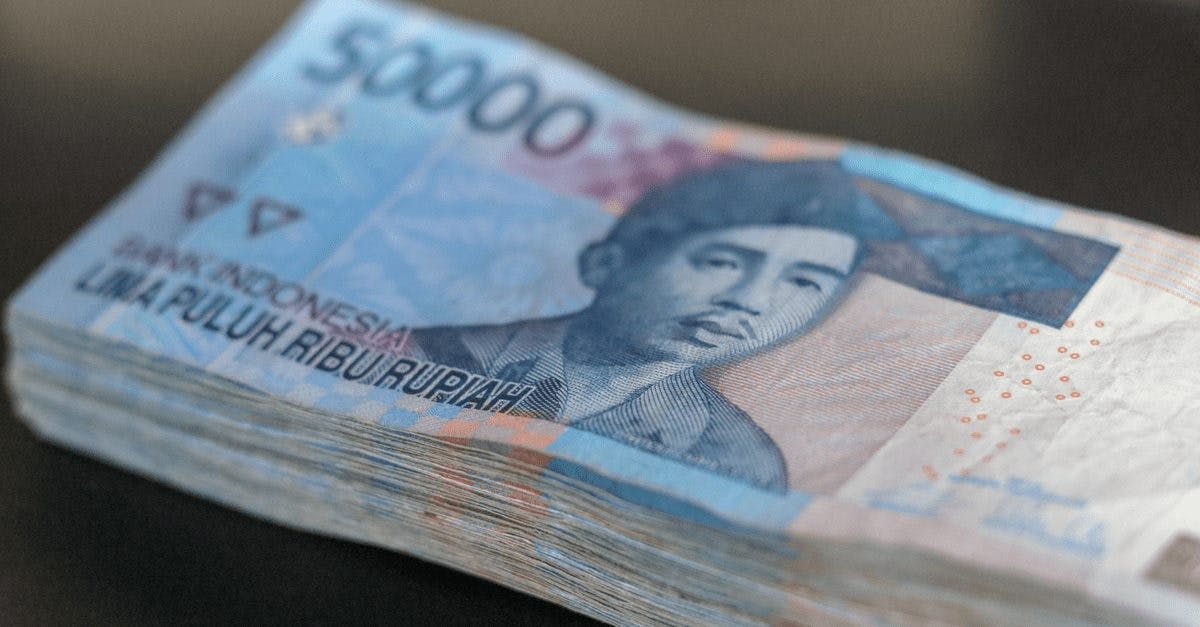StraitsX Launches Indonesian Rupiah Stablecoin
Indonesia has more crypto than stock traders and a burgeoning DeFi industry. StraitsX also issues the SGD stablecoin in Singapore.

Indonesian Rupiah; Source: Shutterstock
- Crypto adoption is surging in Indonesia, as the country’s growing middle class looks for investment alternatives to real estate and equities
- Aymeric Salley, the co-founder of StraitsX, told Blockworks in a prior interview that one day the majority of stablecoins will be denominated in currencies that aren’t the USD
StraitsX, the company behind XSGD, the Singapore-dollar denominated stablecoin which is quickly becoming one of the larger non-USD denominated stablecoins, announced today the launch of an Indonesian rupiah-denominated stablecoin, the XIDR.
Indonesia has quickly become a regional hotspot for crypto trading, with the Jakarta Post reporting that the country has more crypto investors than stock investors now, owing to the fact that most major equities on the board are state-owned and have provided only stale returns.
“XIDR presents a way for the unbanked population to gain access to financial services. It also represents our next step to enabling, democratizing and accelerating access to digital assets for individuals and businesses in Asia and beyond,” Aymeric Salley, co-founder of StraitsX said in a statement.
In a previous interview with Blockworks, Salley has said that he believes that eventually the majority of stablecoins will be denominated in currencies aside from the USD as crypto takes off in emerging markets and locals prefer to denominate their transactions in their own currency.
“StraitsX does not believe that this current state is representative of the market demand but rather the consequence of a lack of trusted and compliant alternatives denominated in other native fiat currencies,” he said.
Part of this market demand has come from what local traders have called the ‘Rendang Premium’, named after a local soup, a premium added to crypto transactions in the country when converting USD to rupiah, given the relative lack of liquidity of the currency.
The XIDR isn’t the first rupiah-denominated stablecoin. There’s also the Binance IDR, used primarily on the Binance-backed Tokocrypto exchange and the RupiahToken.
There are also a number of projects in the country backed by Indonesian banks using blockchain technology to develop more efficient remittance platforms for its migrant worker population. In May, PT Bank Negara Indonesia announced a partnership with J.P Morgan to use J.P Morgan’s Confirm tool on its blockchain-powered Liink network to expedite wire transfers from Taiwan where 250,000 Indonesian migrant workers reside.
Indonesia’s religious council calls crypto ‘Haram’
A potential obstacle to widespread adoption of crypto in-country is Indonesia’s national religious council. The National Ulema Council of Indonesia, or MUI, has declared that cryptocurrency’s speculative nature means that it is ‘Haram’, or forbidden for Muslims.
Ahmad Fahrur Rozi, a spokesperson for the East Java branch of Nahdlatul Ulama, one of Indonesia’s largest Islamic organizations, told Australia’s ABC that crypto trading tends to involve “fraudulent practices and gambling”, hence why it is illicit for Muslims.
“Just like it’s not allowed for a person to buy indistinct objects, like ‘fishes in the sea’ or ‘birds in the air’,” he told the broadcaster, saying that people speculate on crypto’s value without knowing the material reason for its change in value.
This, however, is subject to debate. A blog post on UK-based Islamic equity crowdfunding platform Qardus quoted Sharia advisor Mufti Muhammad Abu-Bakar who views cryptocurrency as acceptable for Muslims as all commodities and currencies are subject to some form of speculation.
Get the day’s top crypto news and insights delivered to your inbox every evening. Subscribe to Blockworks’ free newsletter now.






